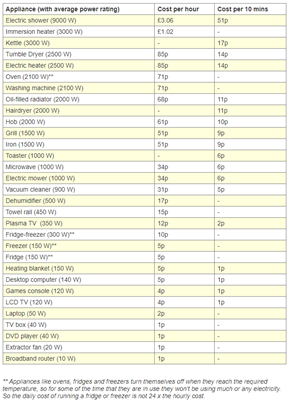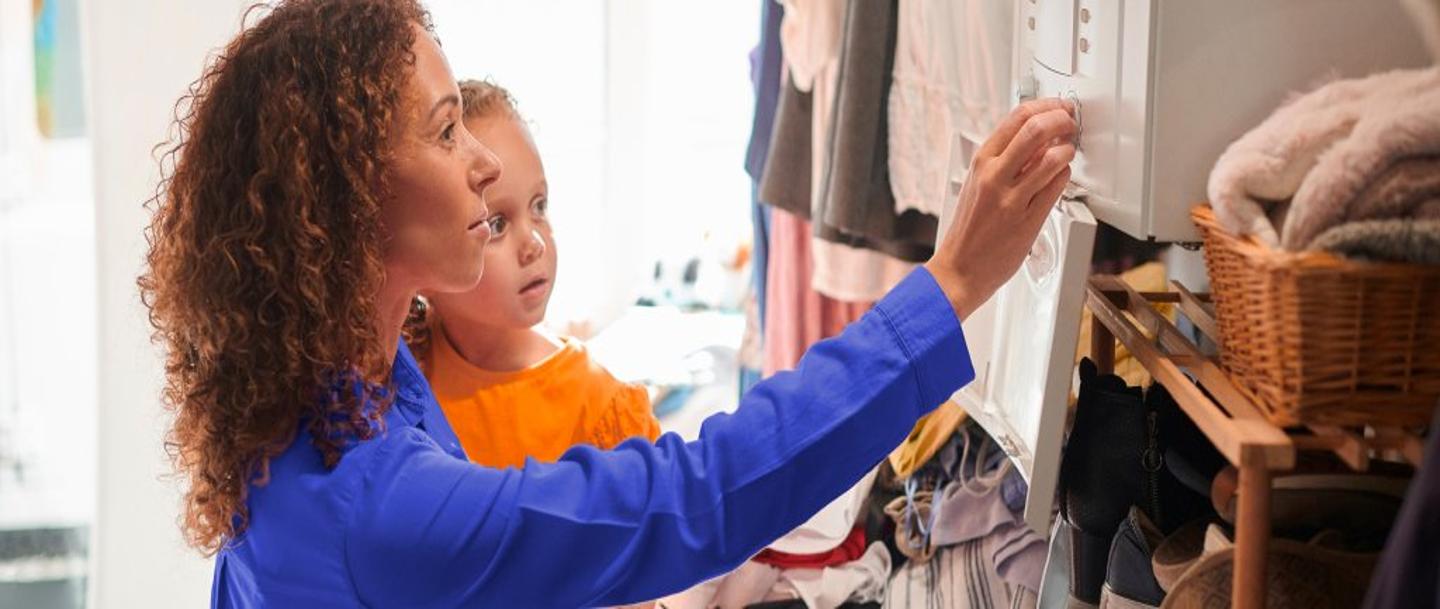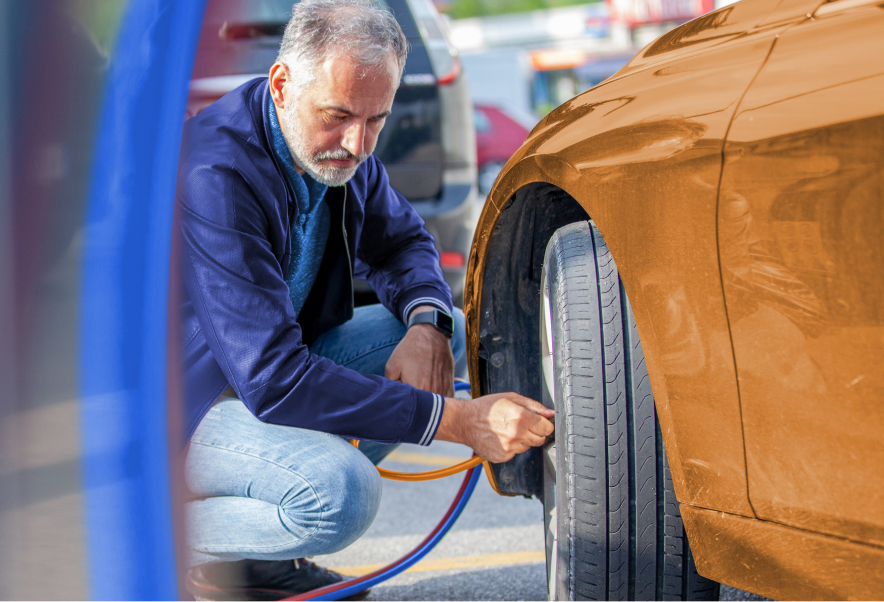With domestic energy prices at an all-time high, inflation pushing up our weekly food shop and general living costs, many will find themselves looking at considerably larger household bills this winter. However, there are options available to you that could help you save, and we’ve put together a guide outlining some ideas that may be able to help.
Water meter installation
By switching to a water meter households could potentially save £100s if they use significantly less than a typical house of the same size being charged standard water rates by only paying for what you use.
Moneysavingexpert.com says if there are more bedrooms in your home than there are people then it’s worth checking out if a water meter would save you money. If you would like to get an estimated annual water meter cost to compare against your current fixed price bill then try this handy calculator.
Contact your water company to find out about water meters, but for most it’s free of charge (in England & Wales) to have one installed. In Scotland, Scottish water will supply a meter for free but you will have to pay for the installation. Some water companies offer water saving devices for free that could also help reduce bills: https://www.savewatersavemoney.co.uk
https://www.getwaterfit.co.uk
Reduce food waste
A WRAP report from 2021 highlighted 4.5 million tonnes of edible food is wasted every year in the UK and 70% of that comes from our homes. As well as reducing our carbon footprint by lessening excessive food production, transport, processing etc, the average UK family of four could save at least £60 a month by reducing their food waste! So, how can you make a difference?
- Plan your meals, make a shopping list and stick to it
- Keep food correctly chilled or frozen so it doesn’t go off while you’re waiting to eat it
- Organise your fridge and cupboards so that older food gets used up first
- Think twice about throwing tired looking fruit and veg away. There are lots of great recipes for soups, desserts and snacks that don’t need your ingredients to be fresh from the shop
- Don’t buy more than you need. It’s tempting to make the most of multibuy offers, but it can be a false economy if that food gets wasted
Turning appliances off
Turning things off is a good habit to get into at home if you want to reduce your carbon footprint. Lights, heaters, TVs, consoles… if you’re not using them, make sure they’re not using energy. If you can turn an appliance right off at the wall without losing programmed settings, do so, because they’ll still be using power in standby mode. Doing this could save you up to £147 per year on energy costs.
Small changes can make a big difference over time. Try turning your thermostats down by one degree. When you make a hot drink, only boil the amount of water you need or alternatively make up a big flask of tea or coffee to keep you going all day.
This table show what it costs to use a range of common appliances. The Centre for Sustainable Energy has taken an average power rating for each appliance; the actual power rating will depend on the size and specifications of the appliance. So the cost of running, say, your microwave, could be more or less than the figure given.
NB The costs below are based on a unit price for electricity of 34p per kWh (average direct debit rate) which is the price cap after 1 October 2022 as announced by the government on 12 September. For some appliances we've only listed the cost for either an hour (column 2) or ten minutes (column 3). This is because no one boils a kettle for an hour at a time or puts on the fridge for 10 minutes.

Source: https://www.cse.org.uk/advice/advice-and-support/how-much-electricity-am-i-using
Switch to LEDs
Leaving lights on around the house is a common issue in family homes, but you can reduce the problem (and your electricity bill) by replacing all your old lightbulbs (when they no longer work) with LEDs. These use 70-80% less electricity than the equivalent tungsten filament bulbs, and they can last over five times longer than a halogen bulb, so switching to LEDs will mean you’ll consume less energy and fewer bulbs too.
As for leaving lights on when there’s no-one in the room, for a small initial outlay, you can switch to smart light bulbs which you can programme to turn off when a room is empty, or control via an app on your phone.

Home insulation
Reducing the amount of heat that escapes from property can help lower the cost of heating your home, as improved insulation will retain the heat within it. You can start by insulating the roof, and you may be eligible for a grant for insulating your loft and walls too - take a look at the ECO scheme for more information.
For a more heat-efficient home, replace old windows with double or triple-glazed units. This can be an expensive initial outlay but will help your house’s energy efficiency and will reduce your carbon footprint straight away.
To see how much you could save by insulating your home check out this useful chart from the Energy Saving Trust
Boiler efficiency
According to the Energy Saving Trust, boiler inefficiency could be costing you hundreds of pounds extra per year on your gas bill.
If you have an older boiler, it is likely to be less efficient than a more modern one with combi boilers being the cheapest to run. For instance, if your boiler has 65% efficiency only 65% of energy is used to heat your home so an eye watering 35% is lost, which means gas usage for an inefficient boiler will be higher when compared to a more energy efficient one, leading to increased bills.
You can usually find the efficiency rating (A to G) of a boiler in the instruction manual but if it is an old one it may be harder to discover. The list below will give you a general idea of the efficiency of each rating:
1. A - 90% and above
2. B - 86-90%
3. C - 82-86%
4. D - 78-82%
5. E - 74-78%
6. F - 70-74%
7. G - below 70%
To replace a boiler to the most energy efficient A rated combi boiler it will likely cost into the thousands of pounds, there are however grants available for those who qualify. You may even wish to move away from gas appliances altogether & consider low carbon alternative such as an air source heat pump, a biomass boiler or a ground source heat pump. These again can cost into the thousands to install, however there are government grants of up to £6000 towards the cost of the new system.
We hope that some of the tips above can help you and your family save some money during this difficult time. And if you are looking for Home Insurance at the moment, check out our cover to see if it could save you any more money.
You might also be interested in
Lower car running costs
Tips to lower day-to-day car running costs
Understanding your home cover and when it applies
Take a look at our tips & keep your home covered.


